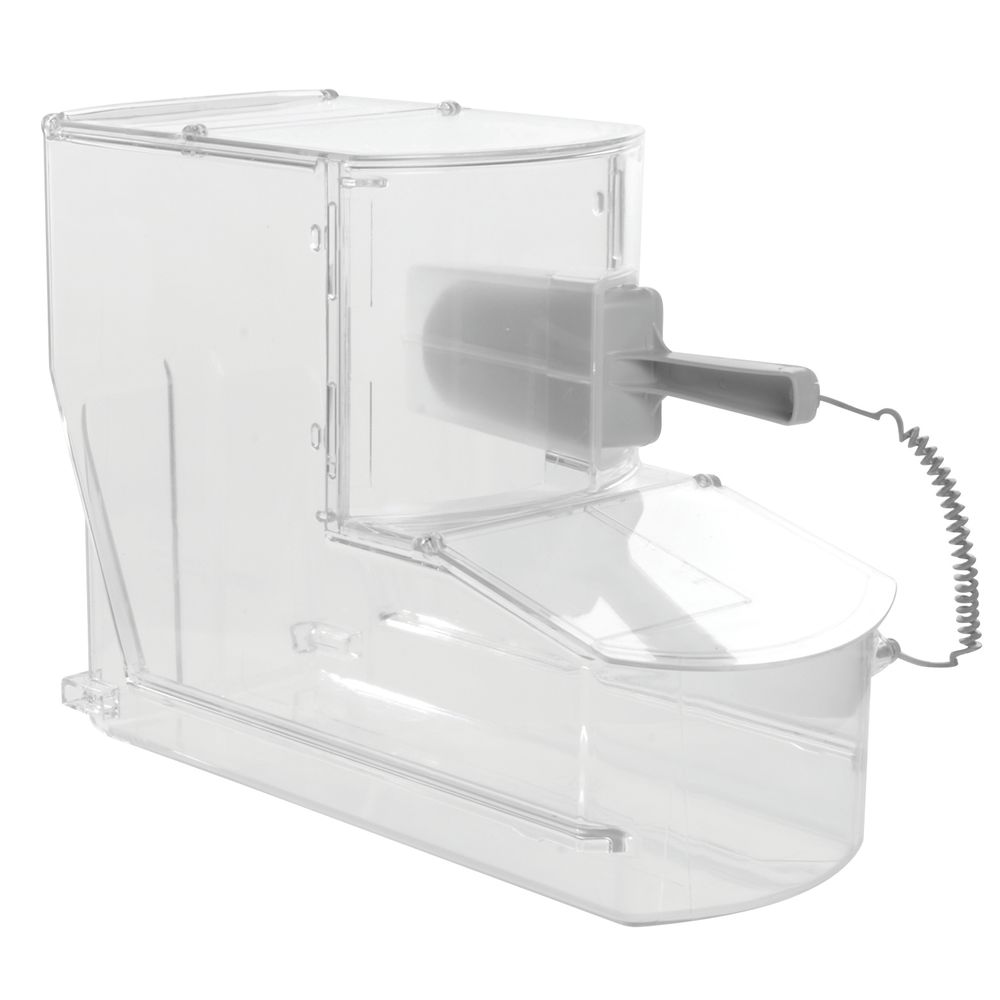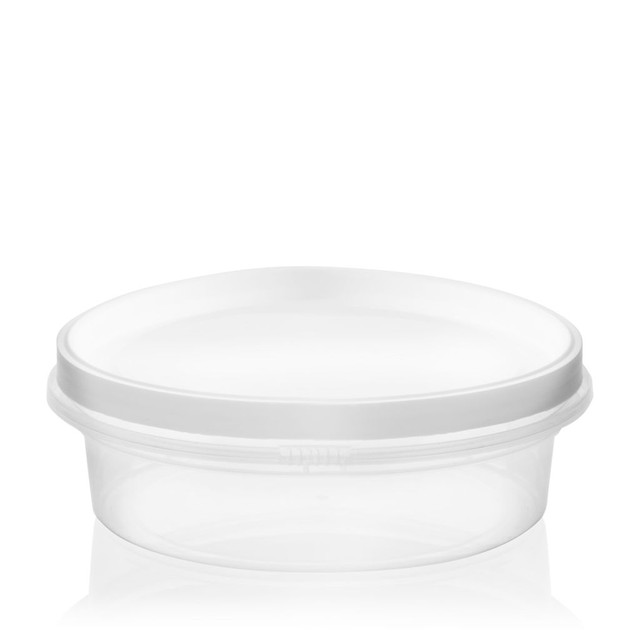A simple guide to handling and storing items with plastic bulk containers
All Concerning Mass Plastic Containers: Advantages, Applications, and Industry Insights
Bulk plastic containers play a considerable function in different sectors, providing benefits that enhance effectiveness and sustainability. Their light-weight nature reduces shipping expenses, while their toughness warranties secure storage and transportation of varied products. As firms progressively seek environmentally friendly services, the need for these containers is expanding. This increases essential inquiries concerning the materials made use of and the fads affecting their layout. What implications do these variables have for the future of mass plastic containers?
Benefits of Bulk Plastic Containers
Bulk plastic containers supply a plethora of advantages in numerous markets. Their light-weight layout especially decreases transport costs, permitting for effective logistics and easier handling. Additionally, these containers provide durability and resistance to weather elements, chemicals, and physical impact, making certain the secure storage and transport of items. The adaptability of bulk plastic containers enables them to be formed into different sizes and shapes, catering to certain market needs.

Common Applications Across Industries
While various sectors utilize bulk plastic containers, their applications are especially noticeable in sectors such as food and beverage, pharmaceuticals, agriculture, and manufacturing. In the food and drink market, these containers are important for saving and moving items like grains, liquids, and prepared dishes, making certain freshness and security. The pharmaceutical industry counts on bulk plastic containers for safe storage of medicines and vaccines, maintaining compliance with rigorous guidelines.
In agriculture, these containers promote reliable handling and transportation of produce, fertilizers, and chemicals, while likewise sustaining sustainable methods through recyclability. Manufacturing markets utilize bulk plastic containers for parts storage space and production line procedures, promoting organization and workflow efficiency. Furthermore, these containers serve a substantial duty in logistics and supply chain monitoring, streamlining the motion of products throughout numerous markets. Generally, the flexibility of mass plastic containers makes them crucial across several sectors.
Product and Design Factors To Consider
When choosing mass plastic containers, product and layout considerations play an essential role in guaranteeing performance and conformity with industry standards. The choice of material considerably influences the container's longevity, weight capacity, and resistance to ecological variables. Usual materials consist of high-density polyethylene (HDPE) and polypropylene, understood for their toughness and chemical resistance.
Design aspects, such as size, shape, and closure devices, also influence functionality. Containers with ergonomic takes care of and stackable layouts improve storage space efficiency and ease of transportation. Furthermore, features like airing vent or water drainage holes may be necessary for details applications, permitting air circulation or liquid elimination.
Compliance with security policies, such as FDA approvals for food-grade applications, is vital. plastic bulk containers. In general, mindful consideration of products and layout can maximize efficiency and durability, ensuring that mass plastic containers meet the diverse demands of numerous industries effectively
Patterns wholesale Plastic Container Use
As markets evolve, the use of bulk plastic containers is progressively affected by sustainability and effectiveness. Firms are choosing for green products, such as recycled plastics, to minimize environmental influence while preserving toughness. This change is driven by consumer demand for lasting practices and regulatory pressures aimed at reducing plastic waste.
Furthermore, the pattern towards automation in logistics and supply chain monitoring is reshaping container styles. Mass containers are now being crafted for compatibility with automated systems, improving functional performance. Light-weight layouts are also obtaining grip, as they minimize shipping expenses and power usage during transportation.
On top of that, customization is becoming a focal factor, enabling businesses to customize containers to details demands, thus enhancing room and functionality. These fads show a wider dedication to sustainability, advancement, and effectiveness within different sectors, ensuring that mass plastic containers continue to play an essential role in contemporary supply chains.
Ideal Practices for Storage Space and Transportation
Efficient storage and transport of mass plastic containers call for adherence to finest practices that improve safety and effectiveness. Initially, containers must be piled safely, assuring that weight is equally distributed to stop tipping or damages. Utilizing pallets can help with easier motion and shield the containers from ground wetness. In addition, appropriate labeling is essential for fast recognition and monitoring during transit.
Temperature control is another vital aspect; extremes can jeopardize the integrity of the products. It is advisable to save containers in a climate-controlled setting when necessary. For transportation, picking suitable cars designed for bulk loads assurances stability and minimizes danger throughout transportation.
Routine assessments of containers prior to storage and transportation assistance identify any wear or damage, enabling for timely upkeep or substitute. By adhering to these best practices, organizations can optimize the lifecycle of bulk plastic containers while keeping operational performance.
Frequently Asked Questions

Are Bulk Plastic Containers Recyclable After Use?
Yes, bulk plastic containers are frequently recyclable after use. Recyclability depends on the material type and neighborhood recycling programs. Appropriate cleansing and sorting are necessary to ensure they are accepted by recycling centers.

What Is the Life Expectancy of Mass Plastic Containers?
The lifespan of bulk plastic containers commonly varies from five to 10 years, depending navigate to this website on use problems, material quality, and ecological factors. Bulk Plastic Containers. Correct maintenance can extend their longevity, making them a durable storage space option
Can Mass Plastic Containers Be Personalized?
Yes, bulk plastic containers can be personalized. Manufacturers typically provide choices for size, color, branding, and product, enabling organizations to tailor containers to their particular needs and improve their product discussion and performance.
Exactly How Do Mass Plastic Containers Contrast in Expense to Alternatives?
Mass plastic containers commonly supply a reduced cost compared click to choices like metal or glass, because of their light-weight nature and durability. This makes them a cost-efficient selection for businesses requiring effective storage services.
Are There Security Rules for Making Use Of Mass Plastic Containers?

Bulk plastic containers play a significant duty in numerous markets, offering benefits that my response boost performance and sustainability. While various industries make use of bulk plastic containers, their applications are specifically popular in industries such as food and beverage, drugs, agriculture, and production. Manufacturing markets utilize bulk plastic containers for parts storage and assembly line procedures, promoting company and process effectiveness. When choosing mass plastic containers, material and layout factors to consider play a vital duty in ensuring functionality and conformity with industry standards. As markets advance, the usage of bulk plastic containers is significantly influenced by sustainability and effectiveness.